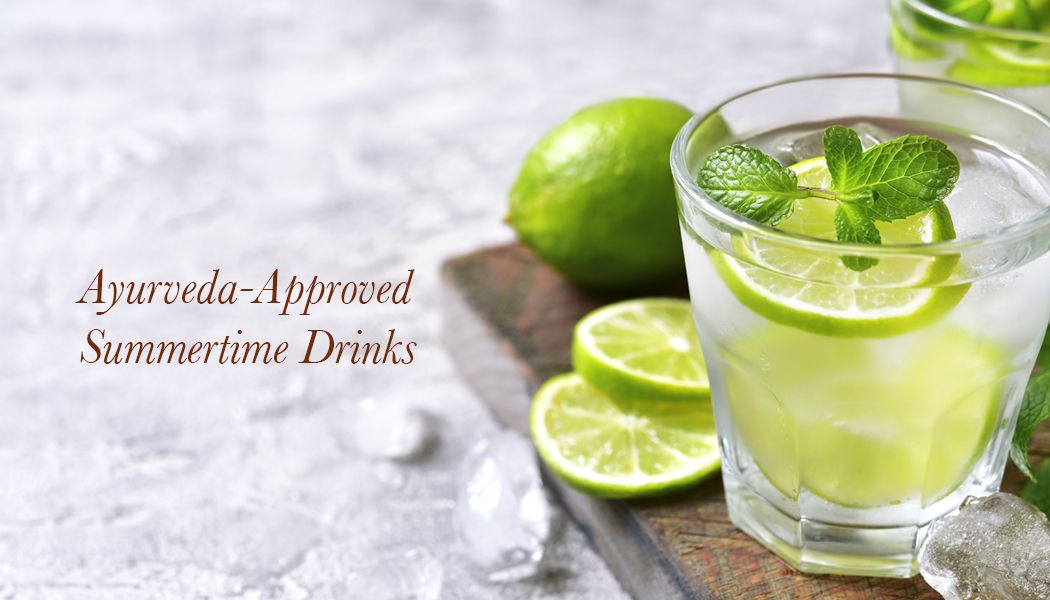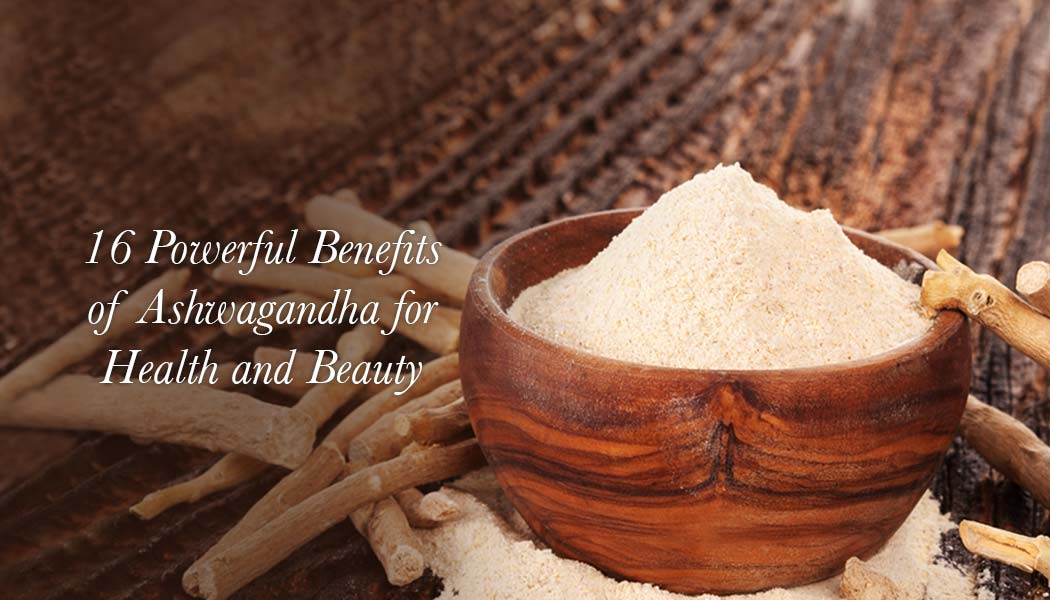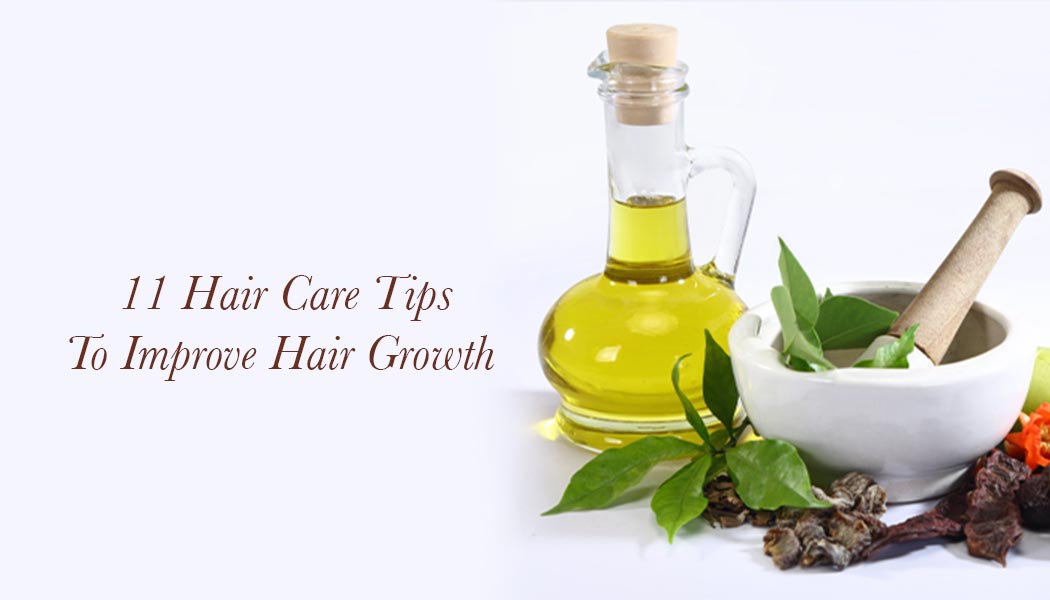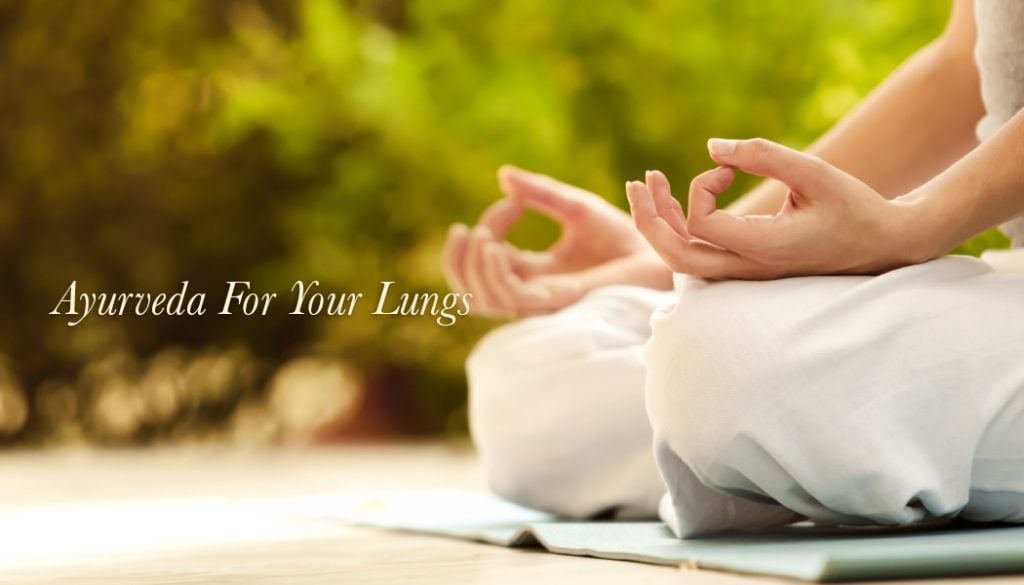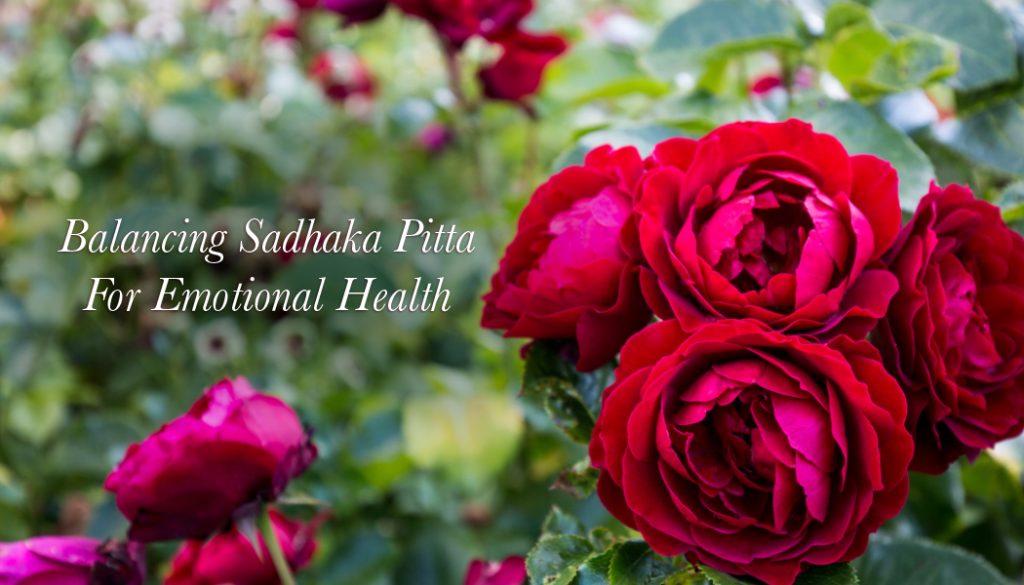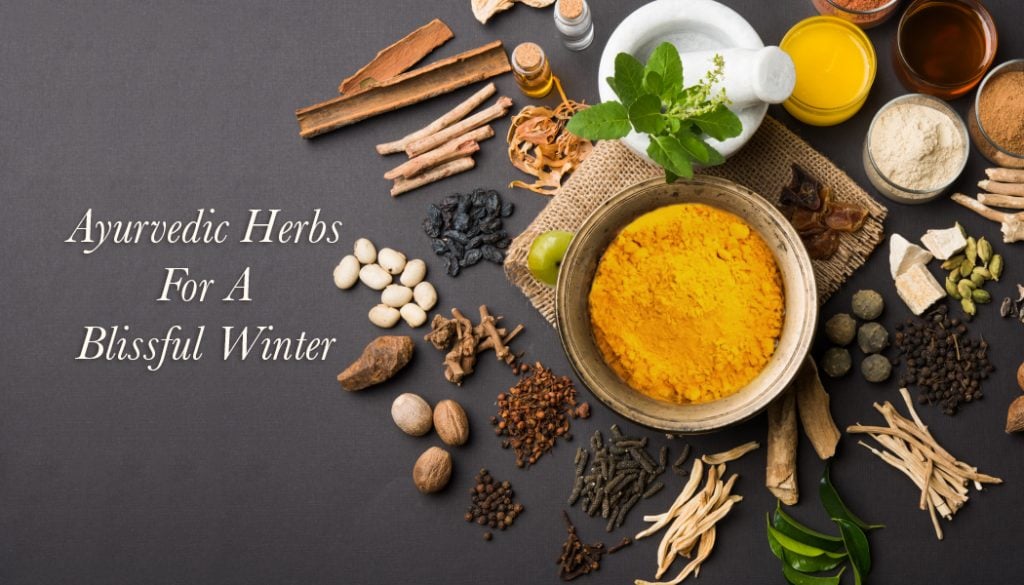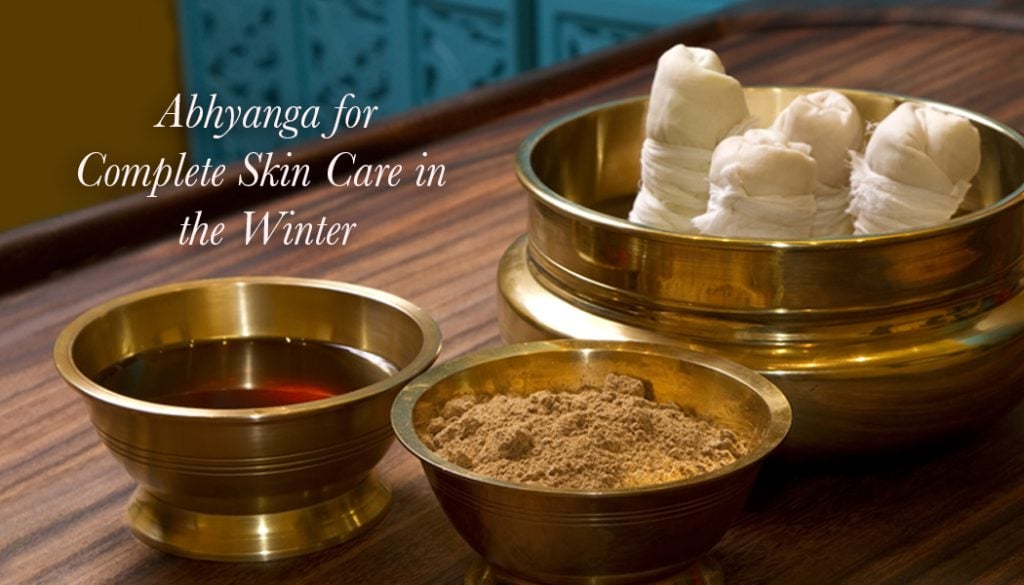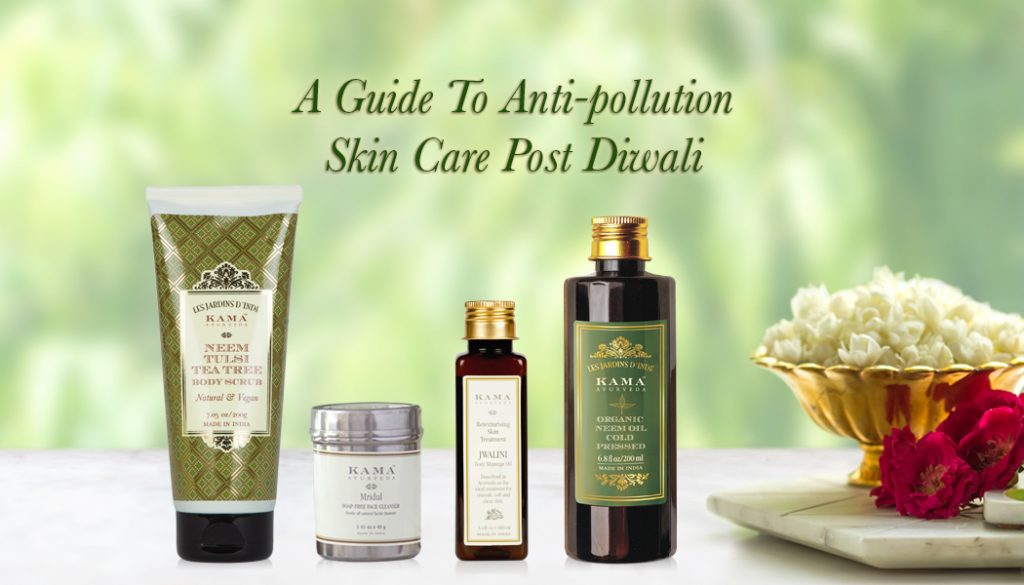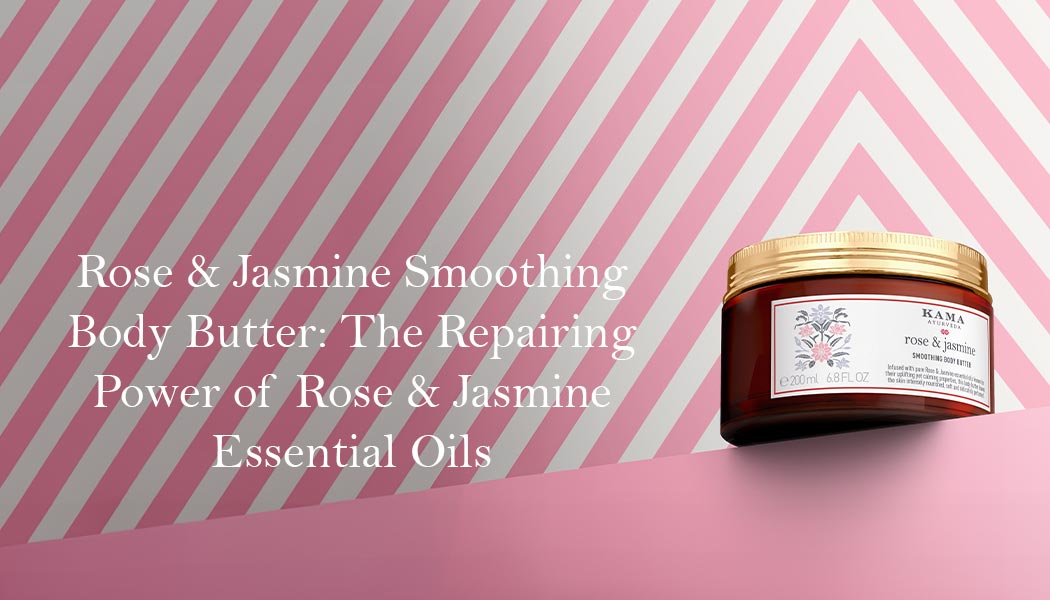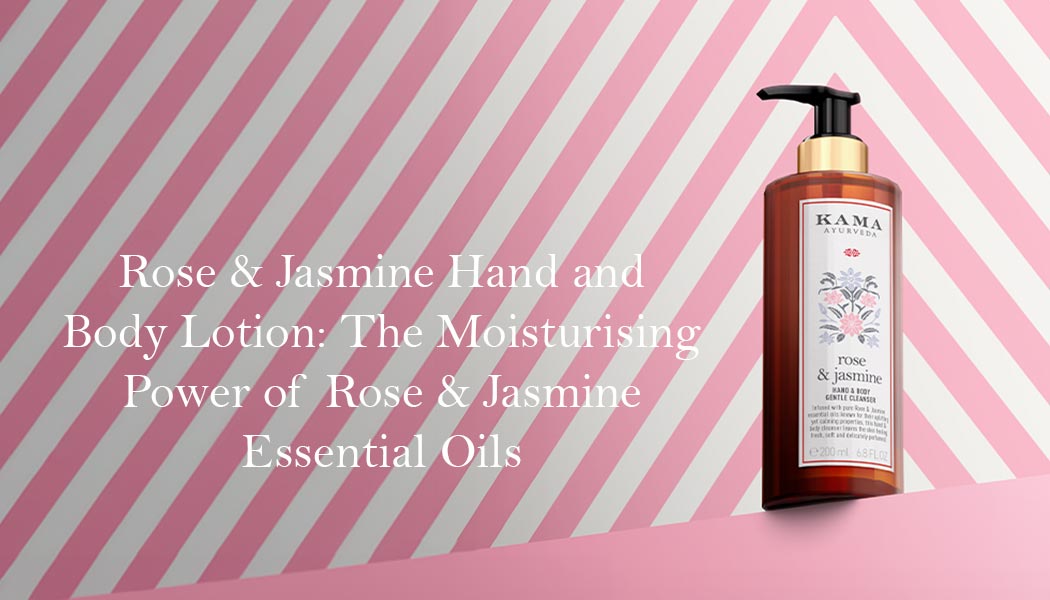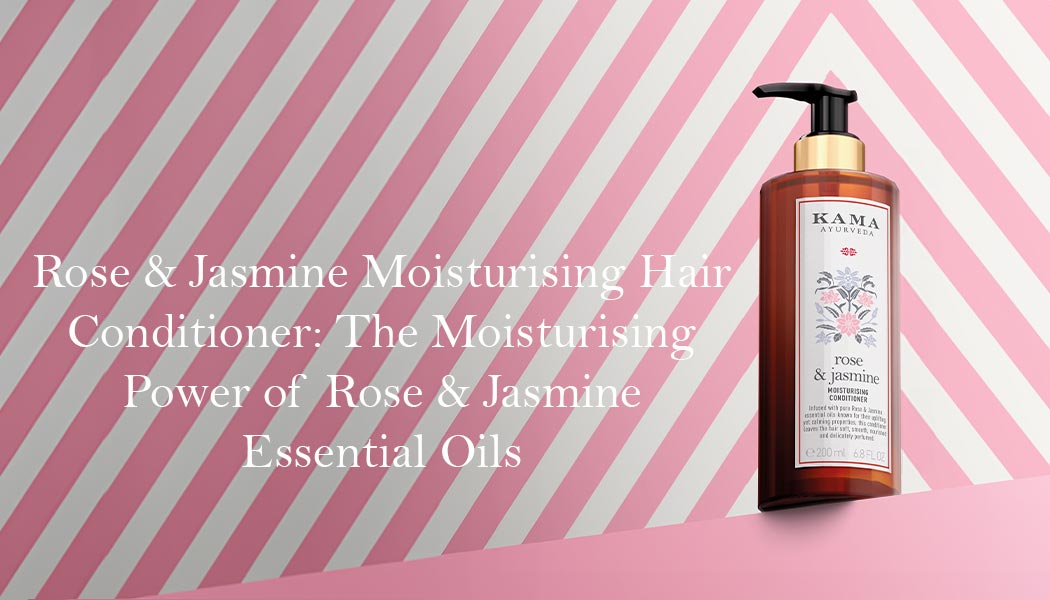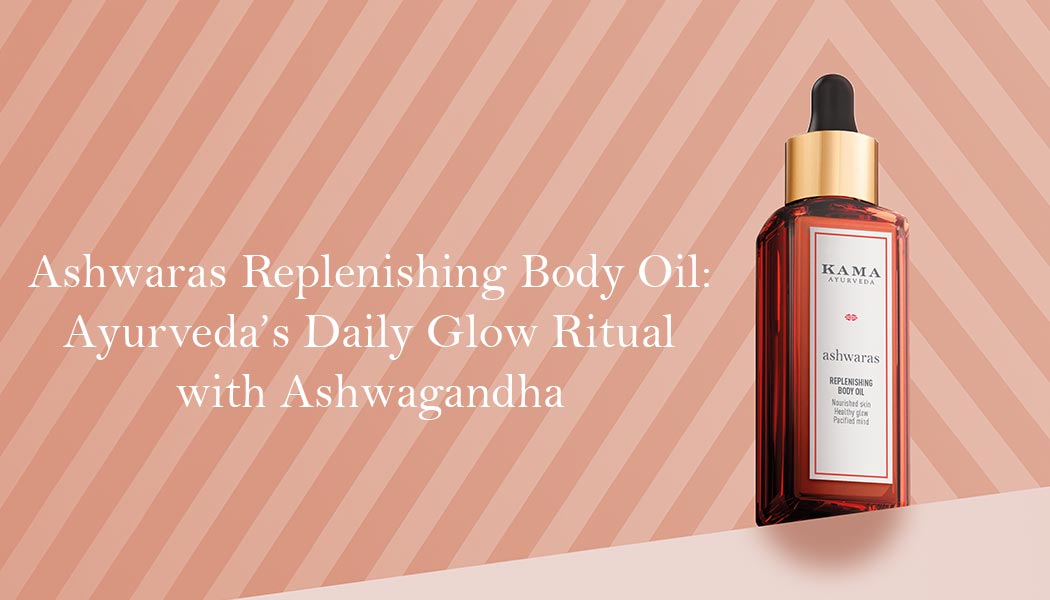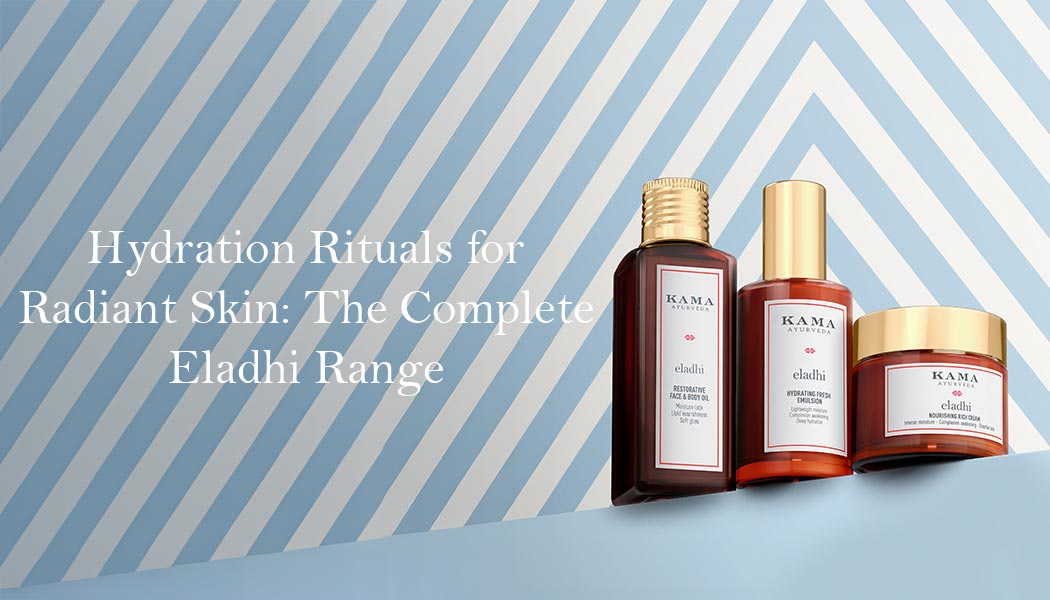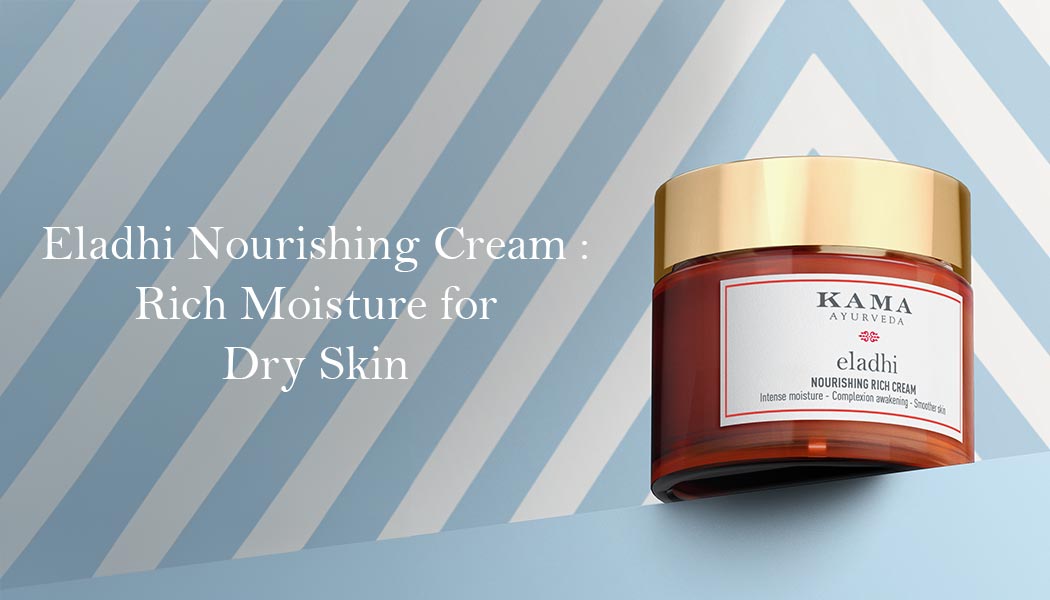- 4 April 2019
- 4 mins read
Every Indian household has sensorial memories of home-made Summertime drinks, prepared by mothers, aunts and grandmothers. These drinks energised us and made us feel good. This is because these recipes focussed on what wise women running Indian homes knew to be the source of beauty and wellness problems – digestion! This is also one of the principal tenets of the Ayurvedic view on health and vitality.
As the incessantly hectic pace of Life continues to wreak havoc on our skin, hair, and digestive health, is it not a good idea to revisit the benefits of these simple, wholesome recipes? We call them ‘beauty drinks’, because their balancing impact on internal physiology results in a soothed, radiant, and reinvigorated outer appearance. Let us look at a few quintessential favourites beyond the all-too familiar Lemonade or Shikanji; and understand how they work in our favour as we go about our day in the relentless Summer heat.
ROSE, JASMINE AND KHUS SHERBETS
Sherbet is derived from the Arabic word shariba (‘to drink’). Sherbets became popular in India during the rule of the Mughal emperor Babur. It is believed he would send people to the Himalayas, to procure fresh ice for his favourite drink. Rose, Jasmine, and Khus (Vetiver) are aromatherapy favourites for the Indian Summer. It is not surprising then, that they should make their way into Summer food and drink as well.
Ayurveda upholds Rose and Jasmine as Sattvic, or ‘Transcendental, Life-Giving and Pure.’ They are believed to soothe the heart, in that they settle scattered and troubled emotions, relieving stress and anxiety in the process. Rose helps regulate internal body temperature, while Jasmine helps replenish the body’s natural hydration levels. Rose positively impacts Sadhaka Pitta, or the sub-dosha of Pitta that governs emotional wellbeing. It washes over Sadhaka Agni, or the digestive fire that 'cooks' emotions, moderating and maintaining its 'flickering' at optimum levels. Ayurveda says that Khus induces Saumanasya Janana, or ‘Mind-Body Tranquillity.’ Khus Sherbet makes for a sublime thirst quencher. It also helps boost blood circulation and provides antioxidant protection for skin against free radical damage.
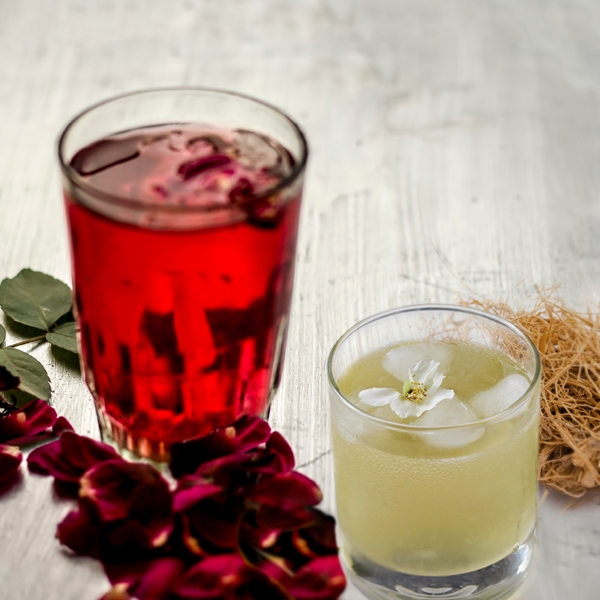
CHAAS/CHHAACHH & LASSI
Chaas/Chhaachh and Lassi are traditional (and very popular!) Yoghurt or Buttermilk based drinks in Indian homes. They are Summer staples especially at the lunch table, because of their nearly-instantaneous cooling effect, specifically on the digestive tract. They buffer against dehydration and are the perfect option if you know you are likely to spend a long day out in the Sun. Chaas/Chhaachh and Lassi are quite similar, except the latter can be prepared with Sugar, but the former usually is not. Mango is the general favourite for flavouring a sweet Lassi, but a savoury version – with Rock Salt, Cumin, Mint or Curry leaves and Asafoetida – has its own fan following. Chaas/Chhaachh is especially popular in Gujarat and Rajasthan. The recipe includes the same spices and condiments as Lassi, but depending on personal taste, a pinch of Red Chilli Powder or sliced Green Chillies may also be added.
Even Ayurveda recommends these drinks because they help calm the stomach after a heavy, or spicy meal, prevent dehydration, and reduce the discomfort of swelling or bloating, and constipation.
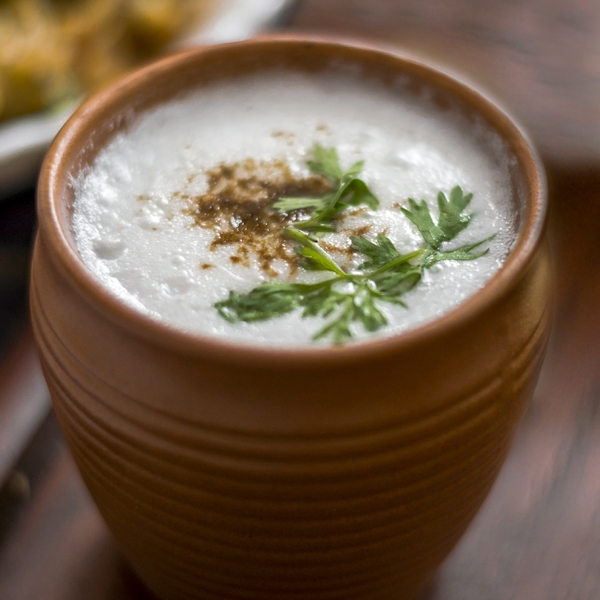
AAM PANNA & PANAKAM
Aam Panna is a sweet-tangy cooler, its principal ingredient being Green Mango. Ayurveda says that the sour, astringent, and cooling qualities of Green Mango should be balanced with the complementary condiments, so that healthy digestion is supported, and the body is strengthened and revitalised. Aam Panna is made with Sugarcane Juice or Jaggery, Cardamom, and Black Pepper. Panakam is traditionally prepared in South India during the festival of Ram Navami. It is called a ‘Vedic drink’ because it is believed to be the favourite of the Indian God Narsimha, and of Goddesses like Durga and Shakti. The recipe includes Jaggery, Salt, Ginger, Lemon, Water, Cardamom and even Tulsi (Holy Basil).
Both Aam Panna and Panakam bolster the immune system, help prevent diarrhoea and dehydration, protect the health and strength of eyes and improve the tone and texture of skin. Jaggery, the main ingredient in Panakam, is Ayurveda’s natural alternative to processed sugar, and also forms the base of liquid fermented Ayurvedic medicines. It is believed to balance the 3 Doshas – Vata, Pitta, Kapha. Jaggery is also an effective blood purifier for a clean, blemish-free complexion.
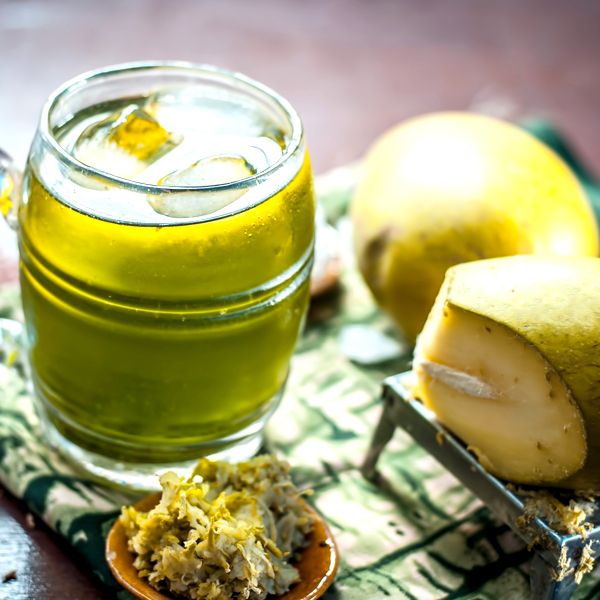

An ayurveda doctor with 14 years of experience in yoga, panchakarma and general wellness. Currently working with Kama Ayurveda, analysing and remediating dermatological concerns and queries of the consumers via in-store, virtual and IVR consultation.
